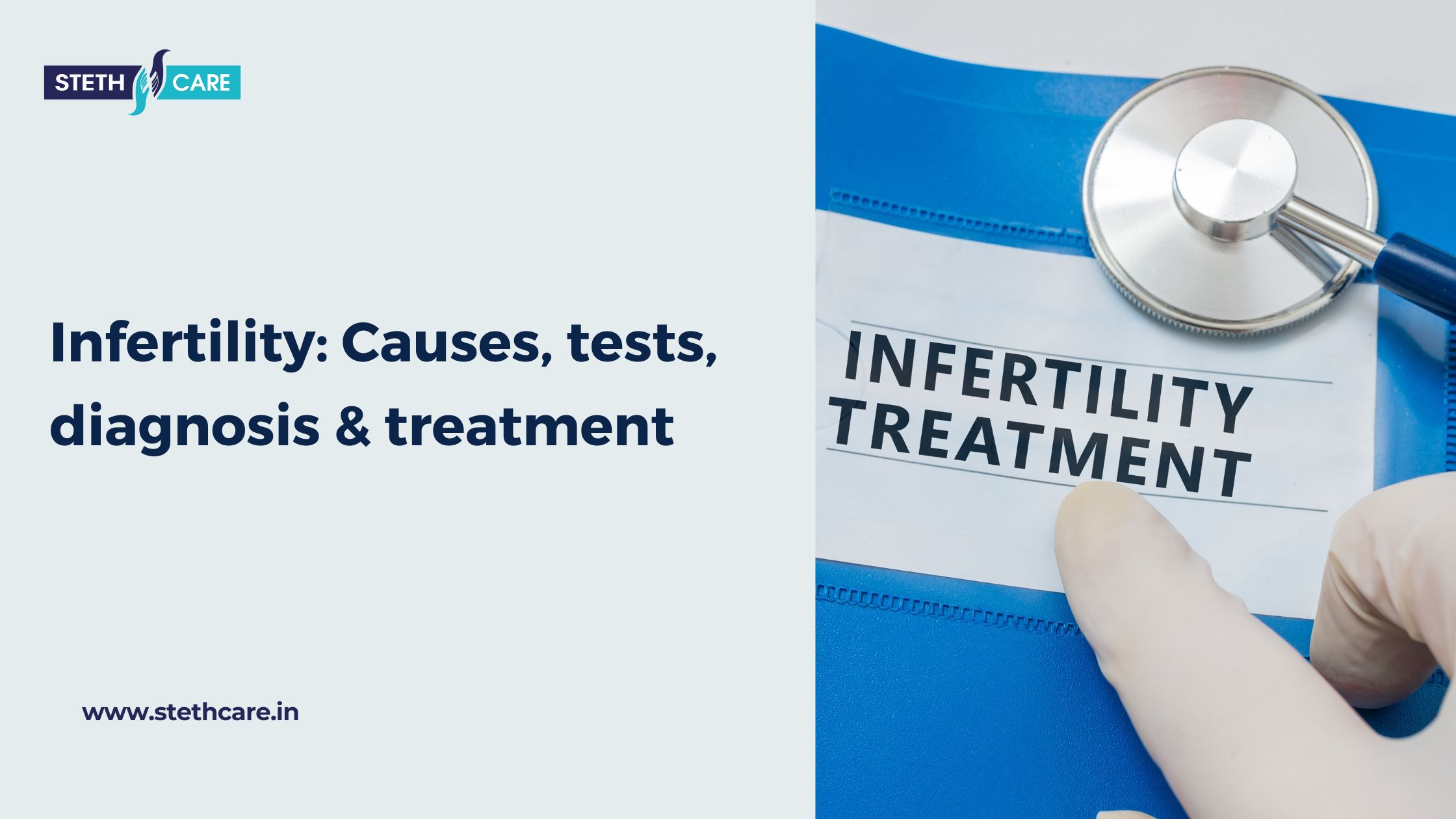
- Infertility
-
by admin
Infertility is a sensitive issue that affects many couples around the world. While some couples find it easy to conceive, others struggle for years with no success. When a couple has difficulty getting pregnant, the first step is to visit a doctor for diagnosis. However, the diagnosis of infertility can be a complex process that requires a thorough investigation of both partners.
In this article, we will explore how doctors determine the root of the problem when diagnosing infertility. We will discuss the different tests and procedures that doctors use to identify the underlying causes of it in both men and women. With this information, couples can better understand the diagnosis process and take the necessary steps to overcome infertility and start a family. So, buckle up and let’s dive into the world of infertility diagnosis!
Infertility & Causes:
It is defined as the inability to conceive after one year of unprotected sex. The condition affects both men and women, and in some cases, it can be a combination of both partners. Infertility can be caused by a variety of factors, including hormonal imbalances, structural problems, and lifestyle factors. For women, age is also a significant factor. As women age, their fertility declines due to a decrease in the number and quality of their eggs.
The most common causes of infertility in women include ovulation disorders, problems with the fallopian tubes, and endometriosis. In men, the most common cause of infertility is a low sperm count or poor sperm quality. Other causes of male infertility include blockages in the sperm transport system, hormonal imbalances, and structural problems.
Infertility can be a frustrating and emotionally challenging experience for couples. It is important to seek medical help as soon as possible to identify the underlying causes of infertility and develop a treatment plan.
IMP of Seeking Medical Help:
Couples who are struggling with infertility often feel alone and isolated. However, it is crucial to seek medical help to identify the root of the problem and develop a treatment plan. A fertility specialist can perform a series of tests to identify the underlying causes of infertility in both partners. These tests can help couples make informed decisions about their treatment options and increase their chances of conceiving.
It is important to remember that many couples who seek medical help for infertility go on to have successful pregnancies. With advances in fertility treatments, there are many options available to couples who are struggling to conceive.
Initial Consultation with Fertility Specialist:
The first step in the diagnosis of infertility is to schedule an initial consultation with a fertility specialist. During this appointment, the doctor will review the couple’s medical history and perform a physical examination. The doctor will ask detailed questions about the couple’s lifestyle, sexual history, and any previous pregnancies or miscarriages.
The fertility specialist may also recommend additional tests, such as blood tests or imaging tests, to identify any underlying medical conditions that may be contributing to infertility. These tests can help the doctor develop a personalized treatment plan for the couple.
Diagnostic Tests for Female Infertility:
To diagnose female infertility, doctors use a variety of tests and procedures. These tests include a physical examination, blood tests, and imaging tests.
Physical Examination:
During a physical examination, the fertility specialist will examine the woman’s reproductive organs, including the uterus, cervix, and ovaries. The doctor will look for any abnormalities, such as cysts, fibroids, or scarring, that may be affecting fertility.
Blood Tests:
Blood tests can help identify hormonal imbalances or other medical conditions that may be contributing to infertility. The doctor may order tests to check hormone levels, such as follicle-stimulating hormone (FSH), luteinizing hormone (LH), and thyroid-stimulating hormone (TSH).
Imaging Tests:
Imaging tests, such as ultrasound or hysterosalpingography (HSG), can help identify structural problems that may be affecting fertility. HSG is a special type of X-ray that uses dye to visualize the uterus and fallopian tubes.
Diagnostic Tests for Male Infertility:
To diagnose male infertility, doctors use a variety of tests and procedures. These tests include a semen analysis, physical examination, and blood tests.
Semen Analysis:
A semen analysis is a simple test that involves analyzing a sample of semen in a laboratory. The test measures the number, shape, and movement of sperm. A low sperm count or poor sperm quality can be a sign of male infertility.
Physical Examination:
During a physical examination, the doctor will examine the man’s reproductive organs, including the testicles, scrotum, and penis. The doctor will look for any abnormalities, such as swelling, lumps, or varicoceles, that may be affecting fertility.
Additional Diagnostic Tests:
In some cases, additional diagnostic tests may be necessary to identify the underlying causes of infertility. These tests include hysterosalpingography, laparoscopy, and genetic testing.
Hysterosalpingography:
Hysterosalpingography (HSG) is a special type of X-ray that uses dye to visualize the uterus and fallopian tubes. This test can help identify blockages or other structural problems that may be affecting fertility.
Laparoscopy:
Laparoscopy is a minimally invasive surgical procedure that involves inserting a small camera through a small incision in the abdomen. The camera allows the doctor to visualize the reproductive organs and identify any abnormalities that may be affecting fertility.
Genetic Testing:
In some cases, genetic testing may be necessary to identify any underlying genetic conditions that may be contributing to infertility. Genetic testing can also help identify any potential risks for passing on genetic disorders to future children.
Interpreting the Results of Diagnostic Tests:
Once the diagnostic tests have been completed, the doctor will review the results and identify the root cause of infertility. The doctor will then develop a personalized treatment plan based on the diagnosis.
It is essential for couples to understand the results of the diagnostic tests and the underlying causes of infertility. This information can help couples make informed decisions about their treatment options and increase their chances of conceiving.
Developing Treatment Plan based on diagnosis:
The treatment plan for infertility will depend on the underlying causes of the condition. Treatment options may include medication to stimulate ovulation or improve sperm quality, surgery to correct structural problems, or assisted reproductive technologies (ART), such as in vitro fertilization (IVF).
It is important for couples to work closely with their fertility specialist to develop a personalized treatment plan that meets their individual needs and goals.
Coping with Emotional Impact of Infertility Diagnosis:
Infertility can be a challenging and emotional experience for couples. It is essential to seek emotional support and counseling to cope with the stress and anxiety that can come with a diagnosis of infertility.
There are many support groups and resources available to couples struggling with infertility. It is important to reach out for help and connect with others who are going through similar experiences.
Conclusion:
Infertility is a complex condition that affects many couples worldwide. It is essential to seek medical help as soon as possible to identify the underlying causes of infertility and develop a personalized treatment plan.
With advances in fertility treatments, there are many options available to couples who are struggling to conceive. It is important to work closely with a fertility specialist and seek emotional support to cope with the emotional impact of infertility.
Remember, you are not alone. There are many resources and support groups available to help you on your journey towards starting a family. So, take action, seek support, and don’t give up on your dreams of parenthood.
